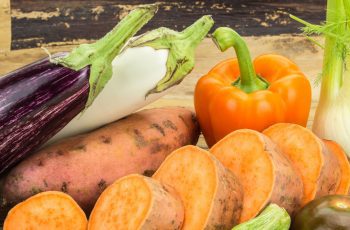I’ve battled anxiety for years, and it affects my life in many ways. One day, while shopping, I found something surprising. The foods we eat can help manage our mental health. This led me to learn about the link between diet and anxiety and how certain foods can help.
In the next pages, I’ll tell you about the top 10 foods that help with anxiety. These foods have been proven to reduce anxiety symptoms and bring calm to your life. Whether you’re dealing with constant worry, panic attacks, or just want to stay mentally healthy, these foods can be your ally. Let’s explore how food can help fight anxiety!
Understanding the Connection Between Diet and Anxiety
The food we eat greatly affects our mental health, including anxiety levels. Research shows how certain nutrients can change brain chemistry. This affects how we feel.
The Science Behind Food’s Impact on Mental Health
Neurotransmitters are key in this connection. They help brain cells talk to each other. Serotonin and dopamine, in particular, control our emotions and mood.
Certain foods, like turkey and nuts, have tryptophan. This helps make serotonin, which makes us feel calm.
How Nutrients Affect Brain Chemistry
On the other hand, cortisol, the stress hormone, is affected by what we eat. Foods with lots of sugar and carbs can raise cortisol levels. This can make anxiety worse.
By knowing how food affects our brain, we can use nutrition to help manage anxiety. This supports a healthy brain.
Foods That Fight Anxiety: A Comprehensive Guide
Anxiety can be really tough, but some foods can help ease its symptoms. In this guide, we’ll look at the best foods to fight anxiety. These foods can help you feel better and improve your mental health.
Powerful Stress-Busting Superfoods
Some superfoods are great for fighting anxiety because they’re full of nutrients. Let’s explore some of the best anti-anxiety foods:
- Dark chocolate and cocoa: These treats are full of antioxidants. They can help improve your mood and reduce stress.
- Omega-3-rich fish: Fish like salmon, mackerel, and sardines have omega-3s. These fats can help ease anxiety.
- Chamomile and herbal teas: Drinking warm chamomile or herbal teas can calm your mind and body.
- Probiotic-rich foods: Foods like yogurt, kefir, and sauerkraut support gut health. This is linked to better mental well-being.
- Leafy greens: Greens like spinach, kale, and swiss chard are full of magnesium. This mineral can help with anxiety.
Adding these superfoods to your diet can help you manage stress. It’s a great way to improve your mental health.
The Perfect Anti-Anxiety Snack: Nuts and Seeds
Nuts and seeds are tasty and full of nutrients that calm the mind and body. Here are some of the best nuts and seeds for anxiety:
| Food | Key Nutrients | Benefits |
|---|---|---|
| Almonds | Magnesium, vitamin E, and antioxidants | Promote relaxation and reduce stress levels |
| Walnuts | Omega-3 fatty acids, antioxidants, and tryptophan | Support brain health and regulate mood |
| Chia seeds | Omega-3s, fiber, and magnesium | Help calm the mind and reduce anxiety symptoms |
Adding these foods to your diet can help you manage stress. It’s a great way to improve your mental health.
Dark Chocolate and Cocoa: Your Delicious Stress-Buster
Looking for a tasty way to fight anxiety? Dark chocolate and cocoa are perfect. They’re not just yummy but also good for your mood and nerves.
Antioxidants and Mood Enhancement
Dark chocolate and cocoa are full of antioxidants, like flavonoids. These help your mental health. They reduce inflammation, improve blood flow to the brain, and boost serotonin and dopamine. These are key for a good mood and less anxiety.
Recommended Daily Intake for Anxiety Relief
- For the best anxiety relief, eat 20-30 grams of dark chocolate (70% cocoa or higher) daily.
- Unsweetened cocoa powder is also good. Add a tablespoon or two to drinks or baked goods for antioxidants.
- But remember, dark chocolate and cocoa are high in calories. Enjoy them in moderation to avoid weight gain.
Adding dark chocolate and cocoa to your daily life can help you relax. They’re packed with antioxidants that fight stress and improve your mood.
Omega-3 Rich Fish: Nature’s Anxiety Remedy
When we talk about foods that help with anxiety, omega-3 rich fish are at the top. These fish are tasty and have a special power to calm the mind. They are great for fighting anxiety.
These fish, like salmon and tuna, are full of omega-3 fatty acids. These nutrients are key for brain health and mood. EPA and DHA, two types of omega-3, help lower anxiety.
| Fish | Omega-3 Content (per 3.5 oz serving) |
|---|---|
| Salmon | 2.2 grams |
| Mackerel | 3.0 grams |
| Sardines | 2.0 grams |
| Tuna | 1.4 grams |
Eating these fish can calm your brain. Try them with whole grains and veggies for a great meal. If you don’t like fish, fish oil supplements can also help.

Next time anxiety hits, eat some omega-3 rich fish. Your brain and mental health will appreciate it.
Calming Chamomile and Herbal Teas
Herbal teas are great for soothing anxiety. Chamomile is especially good, offering a calm way to relax. But there are many other teas that can help reduce stress and improve well-being.
Best Times to Drink for Maximum Benefits
When is the best time to drink herbal tea? It depends on what you like and your daily schedule. Many enjoy chamomile tea in the evening to relax before bed. Others like to start their day with a calming tea to focus better.
Different Tea Varieties for Anxiety Relief
- Chamomile: This classic herb is renowned for its gentle sedative effects, helping to calm the mind and body.
- Lavender: The soothing aroma of lavender has long been associated with relaxation and stress reduction.
- Peppermint: With its refreshing, invigorating properties, peppermint tea can help alleviate tension and promote a sense of mental clarity.
- Lemon balm: This herb has been used for centuries to alleviate anxiety and improve mood.
- Valerian: Known for its ability to improve sleep quality, valerian root tea can also help manage anxiety and restlessness.
Whether you like chamomile or want to try other teas, adding them to your day can be very helpful. They offer a natural way to relax and feel better.
Probiotic-Rich Foods and Gut Health
Exploring foods that help with anxiety, we find the gut-brain link is key. Our gut microbiome, full of good bacteria, affects our health, including our mind. Eating probiotic-rich foods can help reduce anxiety by supporting our gut.
Foods like yogurt, kefir, sauerkraut, and kimchi are full of probiotics. These live cultures can help our gut-brain connection. They can change how we feel by affecting our mood and reducing stress.
| Probiotic-Rich Food | Potential Benefits for Anxiety |
|---|---|
| Yogurt | Contains strains of Lactobacillus and Bifidobacterium, which can improve gut health and reduce anxiety symptoms. |
| Kefir | A fermented dairy drink with a diverse array of probiotics that may help regulate mood and alleviate stress. |
| Sauerkraut | The fermentation process creates beneficial bacteria that can have a calming effect on the nervous system. |
| Kimchi | This spicy fermented vegetable dish is packed with probiotics that may help ease anxiety and depression. |
Eating these probiotic-rich foods can help your gut and possibly reduce anxiety. The connection between our gut and brain is strong. Taking care of our gut can greatly improve our mental health.
Nuts and Seeds: Powerful Anxiety-Fighting Snacks
Nuts and seeds are great for fighting anxiety. They are full of nutrients like magnesium, tryptophan, and zinc. These help keep your mind calm and focused. Let’s look at the best ones for easing your nerves and boosting mental health.
Top Varieties for Mental Wellness
- Almonds: Rich in magnesium, which can help regulate the body’s stress response.
- Walnuts: Contain omega-3 fatty acids that have been shown to improve mood and reduce anxiety symptoms.
- Pumpkin seeds: A great source of tryptophan, the amino acid that boosts serotonin production for better sleep and mood.
- Cashews: High in zinc, a mineral known to play a crucial role in brain function and emotional regulation.
Portion Control and Storage Tips
It’s key to eat nuts and seeds in moderation. Aim for a handful (about 1/4 cup) per serving. This helps avoid too many calories and fats. Store them in an airtight container in a cool, dark spot. Enjoy them as a snack or add them to yogurt or salads.
Leafy Greens and Their Calming Properties
Leafy greens are often overlooked when it comes to fighting anxiety. But they are packed with folate, B vitamins, and antioxidants. These nutrients are key for a calm mood. Adding spinach and kale to your meals can really help with anxiety.
Folate, a B vitamin in leafy greens, helps control serotonin and dopamine. These are the happy chemicals that fight anxiety and depression. B vitamins also boost brain health, making us more resilient to stress.
Leafy greens also have antioxidants. These protect our cells from damage caused by stress. They reduce inflammation, helping our minds relax.
| Nutrient | Benefit for Anxiety |
|---|---|
| Folate | Regulates neurotransmitters like serotonin and dopamine, promoting a sense of well-being. |
| B Vitamins | Support overall brain health, ensuring optimal functioning and a more resilient response to stress. |
| Antioxidants | Help neutralize the harmful effects of free radicals and oxidative stress, reducing inflammation. |
Next time you’re feeling stressed, try a leafy green salad or a spinach and kale smoothie. Your body and mind will appreciate the calming nutrients these greens offer.

Conclusion: Creating Your Anti-Anxiety Meal Plan
Incorporating a balanced diet with foods that fight anxiety can help manage stress. By making smart food choices and planning meals, you can improve your mental health. This approach helps you take charge of your diet and fight anxiety in a holistic way.
Start by adding dark chocolate, fatty fish, chamomile tea, probiotics, and leafy greens to your diet. A balanced diet with the right nutrients can greatly improve your mental health. Combine these foods with regular exercise, stress management, and good sleep for a calmer life.
Meal planning is crucial to eat these anxiety-fighting foods regularly. Set aside time each week to plan meals, make a grocery list, and prepare healthy snacks. This makes it easier to choose the right foods when you feel anxious. With some effort, you can make an anti-anxiety meal plan a part of your daily routine.

